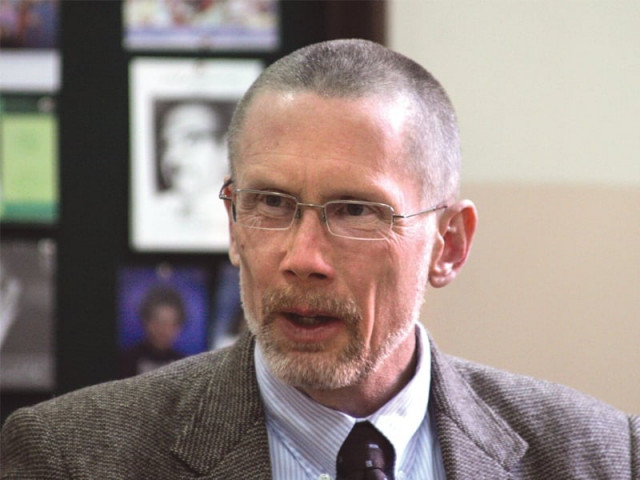Literary matters: ‘Pakistani novelists taking over their Indian counterparts’
Readers increasingly turn to South Asian literature originating from this part of the world, says French scholar.

Pakistani novelists are getting recognition and popularity in the West, particularly in English speaking countries because of their hard work through the years. Once Indian novels were popular but now Pakistani writing is gathering momentum, said David Waterman, an Associate Professor in English at the Université de La Rochelle in France, in an interview with The Express Tribune here on Saturday.
“I have read over 25 novels of Pakistani writers and found them to be very captivating. They are up to the mark as far as content and language is concerned,” he said.
This was Waterman’s first visit to Pakistan and he doesn’t know Urdu or any other local languages. However Pakistani literature, he said, reflects Pakistani society and its cultural diversities.
“I found Pakistani society a vibrant one. Its social and cultural diversities are very strong,” he said. He added even though people in Pakistan are culturally, socially, regionally and ethnically varied, for them, their religious identities come before their ethnicities.
Pakistani history provides a lot of interesting things to the readers for exploring the structure of the society, Waterman said.
Comparing Pakistani and Indian English novels, Waterman said that there are no big differences as far as the standard of their content and language is concerned. However, he said, Indian writers are more vocal about the taboos in their society -- something Pakistani writers have not written about in too much detail.
Waterman added that the story of any nation cannot be explained without historical backdrop, particularly a new one like Pakistan.
He said that in Pakistan’s case, the literature, through its appearance during the freedom movement, highlighted the saga of Pakistan.
The literature describes the germs of extreme nationalism based on religious norms, social setup, quest for freedom protection of cultural and traditional heritage with defined reasoning, he said.
However, the post-partition literature deals with the socio-political, ideological and ethnic problems of the Pakistani society, Waterman said, adding that it is essential to make the distinction between literal and exemplary memory as the first subordinates the present to past while the second allows the past to be exploited in the present.
He elaborated that cultural identity is always a function of social relations and struggles of families offer the reader a personal perspective with which to consider issues of cultural identity on a large scale.
So, history can be taken as narratives of nation and families, he said.
Earlier on Saturday, Waterman spoke with International Islamic University Islamabad Rector Prof. Fateh Muhammad Malik and exchanged views on his research on contemporary Pakistani prose. He cited the names of scores of Pakistani writers that he had read, including Kamila Shamsi, Nadeem Aslam, Mohsin Hamid, Muhammad Hanif, Daniyal Mueendin, Uzma Aslam Khan, Sorayya Khan Noor, Nafisa Haji, H.M. Naqvi, Tahmina Anam, Taslima Nasrin and Muneeza Shamsie.
Published in The Express Tribune, December 5th, 2011.



















COMMENTS
Comments are moderated and generally will be posted if they are on-topic and not abusive.
For more information, please see our Comments FAQ